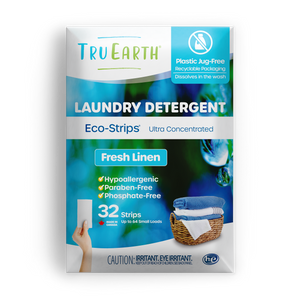Your comforter is your sanctuary of warmth and coziness, especially during chilly nights. But have you ever wondered how often you should wash it?
Maintaining a clean and hygienic comforter is essential for your health and comfort. In this comprehensive guide, we'll explore the factors determining how frequently you should wash your comforter, along with essential tips to keep it fresh and inviting.

Understanding the Importance of Washing Your Comforter
Before we delve into how often, let's understand why washing your comforter is essential.
Allergen Removal
Over time, dust mites, pollen, and other allergens can accumulate in your comforter, leading to allergies and respiratory issues.
Odor Control
Regular use can cause your comforter to absorb sweat, body oils, and other odors. Washing helps keep it smelling fresh.
Prolonged Lifespan
Proper care and washing can extend your comforter's life, saving you money in the long run.
Factors Influencing Washing Frequency
Several factors influence how often you should wash your comforter:
Personal Hygiene
Your habits play a significant role. If you shower before bed and use clean sleepwear, your comforter will stay cleaner longer.
Allergies
Consider washing your comforter more frequently to reduce allergen buildup if you have allergies.
Climate
You may use your comforter year-round in colder regions. In milder climates, you might use it only during the winter.
Pets
If you allow pets on your bed, pet hair and dander can accumulate faster, necessitating more frequent washing.
General Guidelines for Washing Your Comforter
Now that you understand the factors let's establish some general guidelines.
Every Season
At a minimum, aim to wash your comforter every season. This ensures that it stays fresh and free from allergens.
Use a Duvet Cover
Consider using a duvet cover to protect your comforter. You can wash the cover more frequently than the comforter itself.
Check the Care Label
Always check the care label on your comforter. Some require professional cleaning, while others can be machine-washed.
How to Wash Your Comforter
Here's a step-by-step guide on how to wash your comforter effectively:
Check the Care Label
Always start by checking the care label. It will provide specific instructions for your comforter.
Prep Your Washing Machine
If your comforter is machine washable, ensure it is large enough to accommodate it comfortably. Consider taking it to a laundromat with industrial-sized machines if it's too large.
Use a Mild Detergent
Opt for a mild, hypoallergenic detergent. Avoid using too much detergent, as it can be challenging to rinse out of a bulky comforter.
Set the Right Water Temperature
Use cold water for bright-colored comforters and warm water for light and white. Hot water can cause fading and shrinkage.
Balancing Act
Ensure the load is balanced to prevent the washing machine from becoming unsteady during the spin cycle.
Gentle Cycle
Choose the gentle cycle to prevent excessive wear and tear on your comforter.
Rinse Thoroughly
Ensure your comforter is rinsed thoroughly to remove all detergent.
Drying Your Comforter
After washing, it's essential to dry your comforter properly:
Tumble Dry
Use a large-capacity dryer in a low-heat setting. Add tennis balls or dryer balls to help fluff the comforter.
Check Regularly
Stop the dryer periodically to fluff and reposition the comforter. This ensures even drying and prevents clumping.
Air Dry
Consider air drying outdoors if your comforter is too large for your dryer. Make sure it's a sunny and dry day to prevent mildew.
When to Seek Professional Cleaning
Some comforters, especially those with down or delicate materials, may require professional cleaning. Here are signs it's time to call in the experts:
Lumps or Clumps
If your comforter develops uneven lumps or clumps, it needs professional cleaning and re-fluffing.
Tears or Damage
Professionals should address any tears, holes, or significant damage to ensure proper repair and cleaning.
Maintaining Your Comforter Between Washes
To keep your comforter fresh between washes, follow these tips:
- Use a Cover: As mentioned earlier, a duvet cover acts as a protective barrier.
- Shake It Out: Regularly fluff your comforter to prevent the filling from settling.
- Spot Clean: Treat any stains or spills promptly with a mild detergent and a soft cloth.

Comforter Care: Striking the Right Balance for Hygiene and Comfort
The frequency of washing your comforter depends on several factors, including personal hygiene, climate, allergies, and the presence of pets. Following general guidelines and checking the care label are essential for proper cleaning.
And remember, maintaining your comforter between washes will help keep it fresh and cozy for a long time. With eco-friendly options, you can contribute to a greener planet while ensuring the comfort and hygiene of your cherished comforter.


